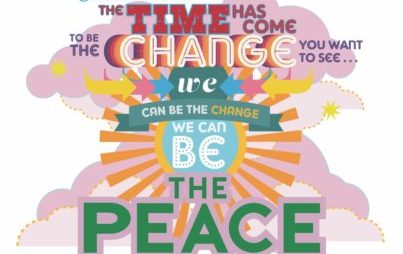If you’re interested in removing animal products from your diet but worry the transition will be too difficult, there’s good news: A new report from research organization Faunalytics suggests that imperfection is part of the journey when switching to veganism or vegetarianism (collectively referred to as veganism).
After studying hundreds of U.S. and Canadian consumers who were in the process of switching to veganism, Faunalytics found that 79% of people transition gradually over several days to many months instead of making the switch “overnight.” People who went vegan more slowly were just as likely to continue with their diet as others, and regardless of transition speed or setbacks, participants felt on average 88% successful with their diet change at the end of six months.

The Going Vegan Or Vegetarian report reveals other helpful insights about the vegan journey, such as the following:
- For people who reduce their animal product consumption gradually, no single method works best: Some people in the study gradually ate fewer meat-based meals, while others cut out one animal product at a time. The report suggests tailoring a specific plan to each individual’s unique needs.
- The typical person reduced their animal product consumption by 42.1 monthly servings over the first six months or so of going vegan. On average, new vegetarians went from eating around 15 servings of animal products a week to under 6. New vegans went from an average of 12 servings a week down to 1.5 weekly servings —getting close to eliminating all animal products.
- Lifestyle and family demands can impact how people make the switch to veganism: Competing demands can make diet change difficult, as married people and people with children tended to be further from their diet goals after six months than unmarried people and those without children.
For aspiring vegans, the Going Vegan Or Vegetarian study reveals there is no single “perfect method” or timeline to successfully make the switch; it’s more important to choose an approach that meets your unique needs. For animal advocates, the study suggests ways to support people making this change. For example, advocates should encourage early commitment, as people who were more committed to their diet at the beginning of the study were more likely to maintain it. Acknowledging that personal circumstances can make change difficult and helping new vegans choose a method that works for them is also critical.
“The ethical and health implications of animal agriculture rose to the top of the public agenda during the COVID-19 pandemic, and with more time on their hands, many people are currently experimenting with vegan and vegetarian cooking,” said Dr. Jo Anderson, Faunalytics’ Research Director and lead author of the report. “Given the well-documented benefits of reducing meat consumption, we hope our study will show these individuals that they can make a substantial and lasting change, even if it isn’t perfect and takes a while. Validating and supporting people’s efforts will motivate them to continue experimenting and moving in the right direction.”
The Going Vegan Or Vegetarian Report is part of Faunalytics’ original research collection, which provides rigorous scientific data to inform the animal protection movement. The report has been generously supported by VegFund and is the first in a series of research Faunalytics will be releasing on the experiences of new vegans.
The study is available at https://faunalytics.org/going-


